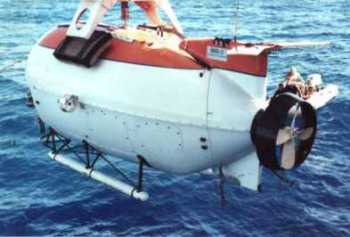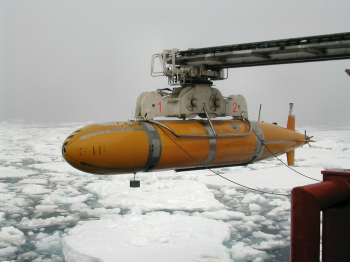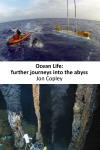Exploring the deep
I have been involved in exploring the deep ocean over the past three decades, using Human-Occupied Vehicles (HOVs) and Remotely Operated Vehicles (ROVs), occasionally leading expeditions aboard research ships, and discovering new species of deep-sea animals.
Those expeditions have investigated places such as hydrothermal vents in the Atlantic, Pacific, Indian, Southern and Arctic Ocean, a brine lake at the bottom of the Gulf of Mexico, the world's deepest undersea volcanic rift in the Caribbean, and underwater mountains around Antarctica, sometimes working with film-makers for the BBC, National Geographic, and Discovery Channel.
No human eye had glimpsed this part of the planet before us, this pitch-black country lighted only by the pale gleam of an occasional spiralling shrimp.
Fieldwork Expeditions
May 2024
RV Kronprins Haakon with Aurora ROV
Tromsø, Norway - Knipovich Ridge - Fram Strait - Longyearbyen, Spitzbergen - Bjørnøya - Tromsø, Norway

Surveying hydrothermal vents and cold seeps on the Knipovich and Molloy Ridges.
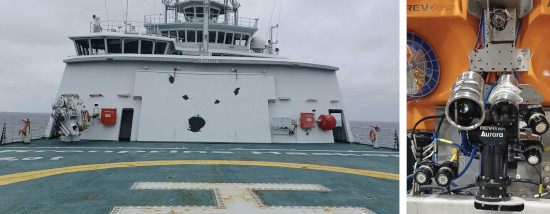
Video by Ocean Census media team
June 2019
Hjalteyri, Iceland with rovREX microROV
Investigating the ecology and evolution of marine life at shallow hydrothermal vents in Eyjafjörður, northern Iceland.
December 2016
RV Alucia with Deep Rover 2 and Nadir HOVs
Ushuaia, Argentina - Antarctic Peninsula - Ushuaia, Argentina
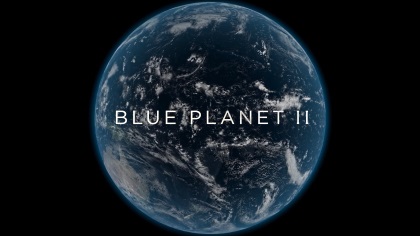
Scientific Guide on BBC Natural History Unit / OceanX expedition to the Antarctic Peninsula, as part of filming for Blue Planet II. This expedition included the first dives by Human-Occupied Vehicles to 1 km (0.62 miles) deep in the Antarctic.
June-July 2013
RV Yokosuka with Shinkai6500 HOV
San Juan, Puerto Rico - Cayman Trough - Colón, Panama
Investigating deep-sea vents in the Cayman Trough, as part of the QUELLE (Quest for the Limit of Life) 2013 round-the-world voyage of the Japan Agency for Marine-Earth Science & Technology (JAMSTEC). This expedition included the first Human-Occupied Vehicle dive to the world's deepest known hydrothermal vents (depth ~5 km / 3.1 miles).
February 2013
RRS James Cook with Isis ROV
Montego Bay, Jamaica - Cayman Trough - Monserrat - St John's, Antigua
Chief Scientist, RRS James Cook Voyage 82, leading the exploration of deep-sea vents in the Cayman Trough.
November-December 2011
RRS James Cook with Kiel6000 ROV
Cape Town, South Africa - SW Indian Ridge - Port Elizabeth, South Africa
Chief Scientist, RRS James Cook Voyage 67, leading the first ROV exploration of deep-sea vents on the Southwest Indian Ridge (depth ~2.8 km).
July-August 2011
RV Celtic Explorer with Holland-1 ROV
Galway, Ireland - northern Mid-Atlantic Ridge - Cork, Ireland
Exploring the first deep-sea vents detected on the Mid-Atlantic Ridge north of the Azores (depth ~3 km).
January-February 2011
RRS James Cook with Isis ROV and SHRIMP camera sled
Punta Arenas, Chile - Bransfield Strait - East Scotia Ridge - South Sandwich Islands - Punta Arenas, Chile

Surveying deep-sea vents in the Antarctic.
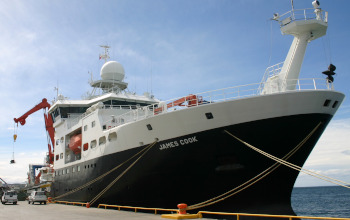
March-April 2010
RRS James Cook with Autosub6000 AUV and HyBIS TV grab
Port of Spain, Trinidad - Cayman Trough - Montego Bay, Jamaica

Exploring the world's deepest undersea volcanic rift, in the Cayman Trough of the Caribbean Sea.
January-February 2010
RRS James Cook with Isis ROV
Punta Arenas, Chile - East Scotia Ridge - South Sandwich Islands - Montevideo, Uruguay
Investigating deep-sea vents in the Southern Ocean.
January-February 2009
RRS James Clark Ross with SHRIMP camera sled
Punta Arenas, Chile - Falkland Islands - South Georgia - East Scotia Ridge - South Sandwich Islands - South Georgia - Port Stanley, Falkland Islands
Exploring undersea volcanoes in the Southern Ocean.
May 2005
RV The Performer with Magellan ROV
Phuket, Thailand - Sumatra Accretionary Prism - Phuket, Thailand
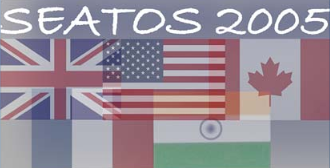
Sumatra Earthquake and Tsunami Offshore Survey in the Indian Ocean, a science-media partnership with filming for Darlow-Smithson's Unstoppable Wave (BBC / ProSieben) and America's Tsunami: Are We Next? (Discovery Channel US).
November 2004
RV Knorr with Jason-2 ROV
Woods Hole, Mass - northern Mid-Atlantic Ridge - Hamilton, Bermuda
Working at deep-sea vents on the Mid-Atlantic Ridge (depth ~3.6 km).
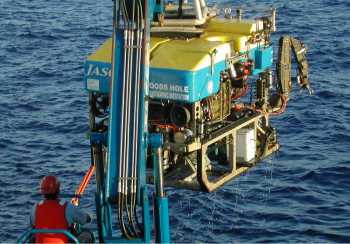
November 2003
RV Seward Johnson II with Johnson Sealink HOV
Port Fourchon, Louisiana - northern Gulf of Mexico - Gulfport, Louisiana
Diving to Gulf of Mexico cold seeps in the Johnson Sealink submersible.
February-April 2003
RRS James Clark Ross with Autosub-2 AUV
Port Stanley, Falkland Islands - Bransfield Strait - Amundsen Sea - Bellingshausen Sea - Port Stanley, Falkland Islands

Surveying sea ice with an Autonomous Underwater Vehicle, in preparation for future missions beneath an ice shelf, for the UK's Autosub Under Ice research programme.
|
|
|
February 2003
RV Edwin Link with Johnson Sealink HOV
Gulfport, Louisiana - northern Gulf of Mexico - Gulfport, Louisiana
Diving to Gulf of Mexico cold seeps in the Johnson Sealink submersible, and teaching on an at-sea deep-sea biology course led by the Oregon Institute of Marine Biology.
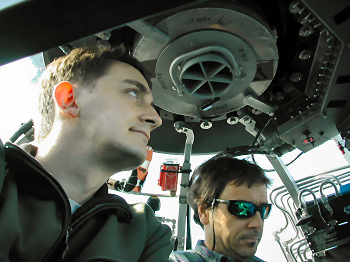
March 2002
RV Seward Johnson II with Johnson Sealink HOV
Fort Pierce, Florida - northern Gulf of Mexico - Gulfport, Louisiana
Investigating cold seeps in the Gulf of Mexico.
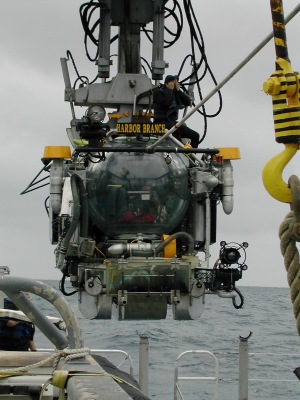
April 1998
RRS Charles Darwin
Southampton, UK - NE Atlantic - Galway, Ireland
Investigating deep-sea ecology in the NE Atlantic, as part of the UK's BENBO (Biogeochemistry in the Deep Ocean Benthic Boundary) research programme.

September-October 1995
DSVSS Laney Chouest with DSV Sea Cliff and Advanced Tethered Vehicle ROV
Alameda, California - Juan de Fuca Ridge - Astoria, Oregon
Diving to deep-sea vents in the NE Pacific in the US Navy's DSV Sea Cliff submersible, and working with their Advanced Tethered Vehicle ROV.

July-September 1994
RV Akademik Mstislav Keldysh with Mir-1 and Mir-2 HOVs
Southampton, UK - northern Mid-Atlantic Ridge - Azores - Southampton, UK

British-Russian Atlantic Vents Expedition 1994 (BRAVEX/94) with the
Russian Academy of Sciences, as part of the UK's BRIDGE (British Mid-Ocean Ridge Initiative) research programme.
